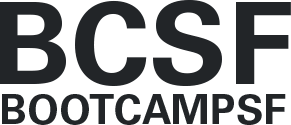Feel like a diet overhaul is the only way to be more healthy? Wrong. There is more than one way you can give your diet a kick in the pants. Here are some tips to help give the food you’re already eating a healthy makeover.
1. Soak and cook your own beans
Beans are the staple of many diets across the globe and an essential component of any plant based diet. They’re an excellent source of fiber, protein and many minerals. Legumes are also high in something called phytic acid. This phytic acid is essentially an outer layer allows for the bean to stay intact through the digestive process. (Why? Beans, just like all plants, want to survive. This indigestible layer acts as their protective barrier). Unfortunately for us, this phytic acid also inhibits our breakdown of beans. The result can be digestive discomfort and missing out on absorbing nutrients. The good news is that soaking dry beans can greatly reduce phytic acid. Soaking also reduces some of the indigestible carbohydrates, making the macronutrient profile of any bean lower in carbohydrates and higher in protein.
Why it’s easy: Buy dry beans in bulk at the store (they’re cheaper this way anyway). Rinse and soak overnight in a bowl. In the morning (or even next evening) throw in a crock pot or regular pot, cover with water and cook away. Cool and freeze any extra in individual containers in the fridge for ready to go recipes, using like you would cans.
2. Dress your dark leafy greens with lemon
You’ve probably heard of stomach acid, right? It’s what helps break down food in our stomach. Just like stomach acid, the acid in lemon juice can help start the process of breaking down rough and fibrous leafy greens. Plus the vitamin C in the citrus boosts iron absorption.
Why it’s easy: Add lemon to your salad dressings or squeeze of lemon on sauteed greens for a boost of flavor.
3. Poach your eggs
Eggs were our food of the week a couple weeks ago. (Check out our BCSF Facebook page #bcsffoodoftheweek posts). And for good reason: eggs are quick to prepare, versatile enough to add protein to any meal and a sustainable animal protein source. However, cooking eggs on high heat can damage the delicate fats and proteins in eggs. Poaching, soft boiling or soft scrambling is the best way to prepare eggs if you eat them regularly. This lower temperature cooking process keeps fats in the yolks from being oxidized. Also, not all eggs are created equal. Check out the guide we shared on how to understand the labels on your egg cartons.
Why it’s easy: If you haven’t ever tried poaching eggs, it’s one of the easiest ways to prepare eggs (no messy pan to clean). Here’s a great how-to.
4. Take care of your oils
Ever notice that olive oil is always stored in dark bottles? Olive oil (and all other liquid-at-room-temperature-oils) are very sensitive to heat, light and air. These oils can become oxidized by exposure to the elements. Olive Oil should be kept in dark glass containers away from the heat and light to preserve the delicate fat molecules. Use higher temperature cooking oils such as coconut oil or butter to cook with. Use unsaturated oils like olive or any nut oil for dressings.
Why it’s easy: Keep a small dark bottle of olive oil on the counter for day to day use and any excess in the fridge.
5. Slow cook your meats
Just like with eggs and oils, cooking meats with very high heat can affect the nutritional value. Cooking at gentler temperatures will preserve sensitive fat and protein molecules found in meats. Save charring or BBQing for occasional cooking.
Why it’s easy: Try using your crock pot for a slow cooked stew or soup.
6. Chew your food
The only way to get the benefits of our food is by digesting it. And that starts with chewing. Most of us only chew our food enough to not choke on it. However, for best digestion we should be chewing our food 5-10x longer. Better digestion equals better nutrient absorption.
Why it’s easy: Start now, with your next meal, and practice chewing a little longer. Slow down to eat and taste your food. With practice, this will become second nature.
Bottom line: It’s time we let go of the healthy verses unhealthy food labels. Our belief around food at BCSF is that there is no such a thing as good or bad food. It’s the quality, preparation and how we eat that makes us healthy. Changing some of our food habits can be just as powerful as changing our food choices.
